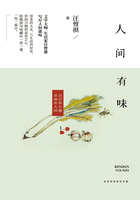Ancestral name Jiang, given name Shang, and imperial name Ziya, Jiang Taigong lived in the later years of the Shang Dynasty (1600 BC-1046 BC). His ancestors were centuries earlier given a piece of land called “Lu,” so he also took this as his clan name.
Jiang Shang was originally a descendant of the king of the Lu State. Later his clan gradually declined in power and influence, and by his time were just common people. From childhood, Jiang Shang worked hard for a rich family to earn a living. Later, he went to the capital of the Shang Dynasty to try to make a living as a peddler and butcher Though impoverished, Jiang Shang was always ambitious, and never gave up studying. He became an expert in military affairs and government.
As he grew older, still without having achieved anything of significance he went back to his hometown on the shores of the Eastern Sea, built a thatched cottage, worked a small piece of land and planned to spend his remaining days living quietly near the land of his ancestors.
However, Jiang Shang had never forgotten his own ambition. Though he was 70 years old, he still followed keenly the affairs of state and the welfare of the common people from his thatched cottage. Hearing the news that the Zhou King was rallying able and virtuous supporters to try to overthrow the tyrannical Shang Dynasty, he immediately set out for the banks of the Weishui River on the outskirts of the capital of the Zhou State.
Jiang Shang lived in seclusion on the River. He often went fishing in the Weishui River, but he would fish in a bizarre way. He would hang a straight hook, with no bait, three feet above the water. Over and over again he said to himself, “Fish, if you are so desperate to live, come and eat my hook yourself.”
Passing by the riverbank and seeing this strange scene, a peasant who had come to chop firewood spoke kindly to the old man, “Granddad, I’m afraid that you will never catch a fish in 100 years that way.”
Jiang Shang replied, “What I fish for is not fish, but the king.” One day, Jiang Shang finally landed his “big fish.” While hunting near the banks of the Weishui River, King Wen found Jiang Shang fishing in his bizarre way. They got to talking and found they had an instant affinity.
King Wen asked Jiang Shang’s opinion about the governance of the country. Jiang Shang shared with him his well-thought-out plans. King Wen was impressed and thought that this could well be the sage who could help him lead the Zhou State. He ordered that Jiang Shang be taken in his coach to the court Jiang Shang was appointed prime minister and given the title Jiang Taigongwang (“The Great Duke’s Hope”, or “The One of Whom Great Things are Expected by the Great Duke”). With the assistance of Jiang Shang, King Wen led his state into a period of prosperity and built up the state’s military power through increased production and the conquering of various vassal kingdoms. After King Wen’s death, Jiang Shang helped his son King Wu defeat the army of the Shang led by King Zhou at Muye. Seeing no way out, King Zhou set fire to his palace and committed suicide.
Jiang Ziya is regarded as one of the greatest strategists in Chinese history, and is honored as the first famous general and effectively the father of military strategy. He attained an officially sanctioned status which approached even that of Confucius.















